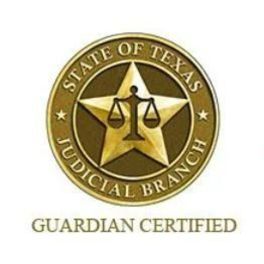Probate And Estate Administration
Understanding the probate process in Texas is essential for anyone dealing with estate planning or the affairs of a deceased loved one. At Baker & Baker Elder Law, we guide you through each step with clarity and knowledge.
What Is Probate?
Probate is a legal process that occurs after someone passes away. It involves verifying the deceased person's will, appointing an executor, and administering the estate. The goal is to ensure a proper transfer of assets to the rightful heirs.
Steps in the Probate Process
Filing the Application: The probate process begins by filing an application with a Texas probate court. The court reviews the will and determines its validity.
Notifying Heirs and Creditors: Once the probate is opened, there is a legal obligation to inform all potential heirs and creditors about the proceedings.
Inventory and Appraisal: The appointed executor must collect an inventory of the deceased's assets and have them appraised. This is crucial for assessing the estate's value.
Settling Debts: The estate is responsible for settling any valid debts and obligations the deceased had at the time of death.
Distributing Assets: After debts are paid, the remaining assets are distributed according to the will's instructions or, if no will exists, under Texas intestacy laws.
Importance of a Valid Will
A valid will is not just a legal document; it's a crucial tool that can greatly simplify the probate process and ensure that your wishes are honored after you pass away. Here’s a deeper look at its benefits:
Clarity of Intentions: A well-drafted will articulates the deceased's specific wishes concerning asset distribution. This clarity helps avoid ambiguity about how assets should be allocated, making it easier for executors to carry out the deceased's wishes. It can also specify guardianship for minor children, thereby ensuring that their future is secure in accordance with the deceased's preferences.
Lower Costs: While some may perceive drafting a will as an unnecessary expense, having a valid will can actually lead to significant savings in legal fees and administrative costs. Without a will, the probate process can become lengthy and complicated, often leading to higher costs due to extended legal proceedings. A clear will can expedite the process, reducing the time and resources spent on administration.
Mitigated Disputes: One of the most significant advantages of a valid will is its potential to minimize family disputes and litigation. When the deceased's wishes are clearly documented, there is less room for interpretation or contestation among heirs. This can help maintain family harmony during a challenging time, reducing the emotional toll that disputes can take on loved ones.
Personalization of Distribution: A will allows individuals to customize the distribution of their assets according to their specific wishes, which may not align with the default laws of intestacy. This includes the ability to leave particular items to certain individuals, establish trusts for minors or dependents, and make provisions for charitable donations, reflecting the deceased's values and priorities.
Peace of Mind: Knowing that you have a valid will can provide peace of mind, both for the individual making the will and their loved ones. It reassures family members that they will be cared for and that the deceased's wishes will be respected, alleviating some of the stress associated with loss.
Creating a valid will is an essential step in responsible estate planning. It not only streamlines the probate process but also ensures that your legacy is honored according to your wishes.
Seek Legal Help From An Experienced Corpus Christi
Lawyer
Common Probate Challenges
Probate can present several challenges that often necessitate legal intervention. Understanding these challenges can help families navigate the complexities of the process more effectively:
Contested Wills: One of the most common issues arises when heirs or beneficiaries dispute the validity of the will or its specific terms. This can happen for various reasons, such as allegations of undue influence, lack of capacity at the time the will was created, or questions about whether the will was properly executed. Legal battles over contested wills can prolong the probate process, leading to increased costs and emotional strain on families.
Complex Estates: Larger estates that involve a variety of assets—including real estate, investments, business interests, and personal property—can complicate probate proceedings. Managing these different types of assets often requires specialized knowledge and can result in delays as the executor works to ensure that all assets are identified, valued, and appropriately distributed. Additionally, disputes can arise over the division of complex assets, further complicating the process.
Estate Tax Issues: Navigating potential tax implications is a critical aspect of the probate process. Estates may be subject to federal and state estate taxes, and understanding these tax obligations requires financial acumen. Executors must ensure that all tax returns are filed accurately and on time, while also determining the best strategies for minimizing tax liabilities. Failure to address these issues properly can lead to significant financial repercussions for the estate and its beneficiaries.
By being aware of these common probate challenges, families can take proactive steps to mitigate potential issues and ensure a smoother process during a difficult time.
How We Can Assist
Our legal team at Baker & Baker Elder Law specializes in managing the intricacies of probate. Here's how we can support you:
Comprehensive Guidance: We provide expert advice through every step of the probate process.
Conflict Resolution: Our attorneys assist in mediating disputes and minimizing conflicts among parties.
Efficient Administration: We handle all procedural aspects to ensure a smooth and timely administration.
In conclusion, while probate in Texas can be complex, you don't have to navigate it alone. Baker & Baker Elder Law offers the expertise and dedication needed to simplify the process. Schedule a consultation today to discuss how we can assist you with probate matters.
